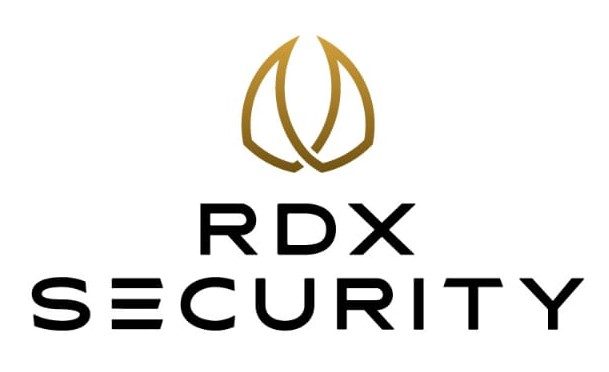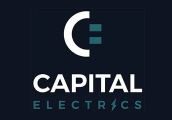Crypto Taxes & Accounting
- February 2022
- 5 minutes
As someone who works extensively in the digital economy, including crypto assets, this post is meant to provide a slightly larger perspective on the crypto landscape, while also focusing on some of the many taxation difficulties that are developing due to this evolving industry.
 What is Crypto?
What is Crypto?
Crypto assets, as we know them, still have some way to go to pass these tests, and so are not generally regarded as money. However, as many worlds’ central banks start to introduce their own digital currencies, we will start to see some cryptos passing the test of money.
Over the year or so, a lot of work has been done by the UK and various other governments to determine this point, and what is necessary to regulate a highly unregulated economic ecosystem. The UK government has introduced consultations on the regulatory approach to crypto assets, including in the financial markets.
 Legal status on Crypto
Legal status on Crypto
If advising on crypto, it is important to understand what it is, and its legal status. The digital economy and the role of intangibles is always complex, particularly when seeking to apply the correct tax analysis. Fortunately, various legal disputes have been addressed in the courts (mainly because bitcoin has significantly increased its value).
The UK jurisdictions Taskforce has also published a ‘Legal statement on status of crypto assets and smart contracts’, which aimed to answer some of the critical legal questions regarding crypto and provide some certainty in its use. It concluded that crypto assets have all of the indicia of property, and that the novel or distinctive features possessed by crypto assets, such as intangibility or decentralisations, do not disqualify them from being property.
 Taxation
Taxation
This article mainly focuses on the role of exchange tokens and utility tokens, but in reference to the UK employment related security rules, securities tokens are also in point.
HMRC issued its Crypto Assets Manual on the tax treatment of Crypto Assets. The manual replaces less comprehensive HMRC guide published in 2014.
As with everything digital, guidance needs to be updated on a regular basis due to ongoing and quick moving developments. In particular, decentralised finance will need to be incorporated, and most likely crossed referenced with HMRC’s other guidance manuals, in particular the Corporate Finance Manual.
 Personal Taxation
Personal Taxation
Currently, most tax advisers will be seeing individuals who are holding or disposing of crypto portfolios. The legal interpretation of crypto as a property is extremely useful, particularly in area of bitcoin held for investment purposes, on the basis that the crypto amounts to a store of value.
The main tax head is capital gains tax, which many will already recognise charges by the way of Taxation of Chargeable Gains, all forms of property whether situated in the UK or not shall be treated as assets.
Section 104(3) (ii) extends the share pooling rules relating to company shares and securities to ‘any other assets where they are of nature to be dealt in without identifying the particular assets disposed of or acquired. The effect of this is that if a client is holding one or more types of crypto for investment purposes, the pooling approach will be required. Each type of token will need its own pool, and acquisition and disposal activity for each will need to be matched for the same day rule and the ’section 104 pool’
Often confusing is the concept that moving from one crypto to another will most likely (but not always) amount to disposal and acquisition for capital gains tax purposes.
 Income Tax
Income Tax
Due to the way bitcoin (and other similar tokens and coins) was originally constructed the Proof of Work mechanism is necessary for the creation of new crypto (via the cancellation of the old and creation of new blocks). Digital work therefore needs to be done as part of maintaining the ecosystem. This again can cause confusion on many sides. Tax advisers and authorities will often pick up on the word work and start to think about trading and income tax. It is always important to remember that this is the phrase of those within the ecosystem and doesn’t automatically lead to ‘work’ in the more traditional sense.
An analysis of the facts or a review of a contractual obligations is important to determine whether work is being undertaken in the more traditional framework, as they may be a trading issue. It is worth remembering the badges of trade as set out in the 1955 report by the Royal Commission on the Taxation of Profits and Income: profits seeking motive; the number of transactions; the nature of the asset; changes to the asset; the nature of the sale; the application of finance and so on.
For tax advisers with clients claiming the non-domicile remittance basis, this is a real challenge. HMRC’s view is that the location of the crypto assets will be determined by the residency of the beneficial owner (and thus will be in the UK where the owner is UK resident). This is essentially on the basis of that the private keys a security element necessary for users to access their cryptocurrency) are under the user’s control whenever they are. If the UK resident has no access to or knowledge of the private keys, then the status might well be different.
 Employment Taxes
Employment Taxes
As the crypto market develops businesses will seek to pay their employees in crypto or even incentivise them with crypto. Depending on how the business or company is structured, there could be well employment related security issues ERS, and possibly PAYE and NIC implications, if the crypto amounts to a readily convertible asset. Whether or not there is an employment related securities point, simple payment of employees in crypto will simply trigger PAYE and NIC liabilities as general earnings.
 Tax Evasion
Tax Evasion
There has been much publicity surrounding the risk of crypto in terms of money laundering and the role it can play in tax evasion. While some non-compliance will be because holders of crypto not have been aware that certain crypto transactions are taxable, there will be always element of tax evasion. Tax advisers must undertake the necessary precautions to identify this, and fully comply with the anti-money laundering obligations, and good ethical practice, in terms of their relationship with HMRC.
HMRC has been increasingly concerned about the tax lost on cryptocurrency, and very keen to counter the risk of non-compliance. Tax advisers will be aware that HMRC has recently embarked on a new nudge campaign to advise some holders that is aware of their crypto holdings, and these holdings may be taxable. HMRC has been using its bulk data information powers to secure personal information from a number of the crypto exchanges.
 VAT
VAT
The substance and form of any crypto transactions is just as important for VAT purposes. Some non-fungible tokens, for example will amount to utility tokens and amount to a provision or future of services, or possibly even trigger the VAT vouchers rules. It will be important to understand exactly what is being offered or provided, often set out in an associated contract or digital terms and conditions in a smart contract.
We should anticipate significant change to the way financial services are provided in the next decade. Crypto is part of this, and the term will likely develop, or even be replace by another in the years ahead. We are already seeing central banks looking to introduce their own digital currencies. This is clearly an indication that they see crypto in some shape or form, remaining and growing.
According to the Cambridge Bitcoin Electricity Consumption Index, the energy used is now equivalent to the annual carbon footprint in Argentina. If crypto is to become an integral part of our digital world, then the only answer is for clear technologies. I see many blockchain companies moving from Proof of Work mining to greener Proof of Stake approaches, and also can see a desire of those in the crypto world to find wider clean solutions.
 How can we help?
How can we help?
If you would like to get specialist advisers to look after your tax affairs and to make sure that you are fully compliant with the tax requirements, you can choose to discuss this further with us. Our firm can be officially appointed to deal with your tax matters and advise on how to ensure good record keeping to enable the calculations required for taxes.















